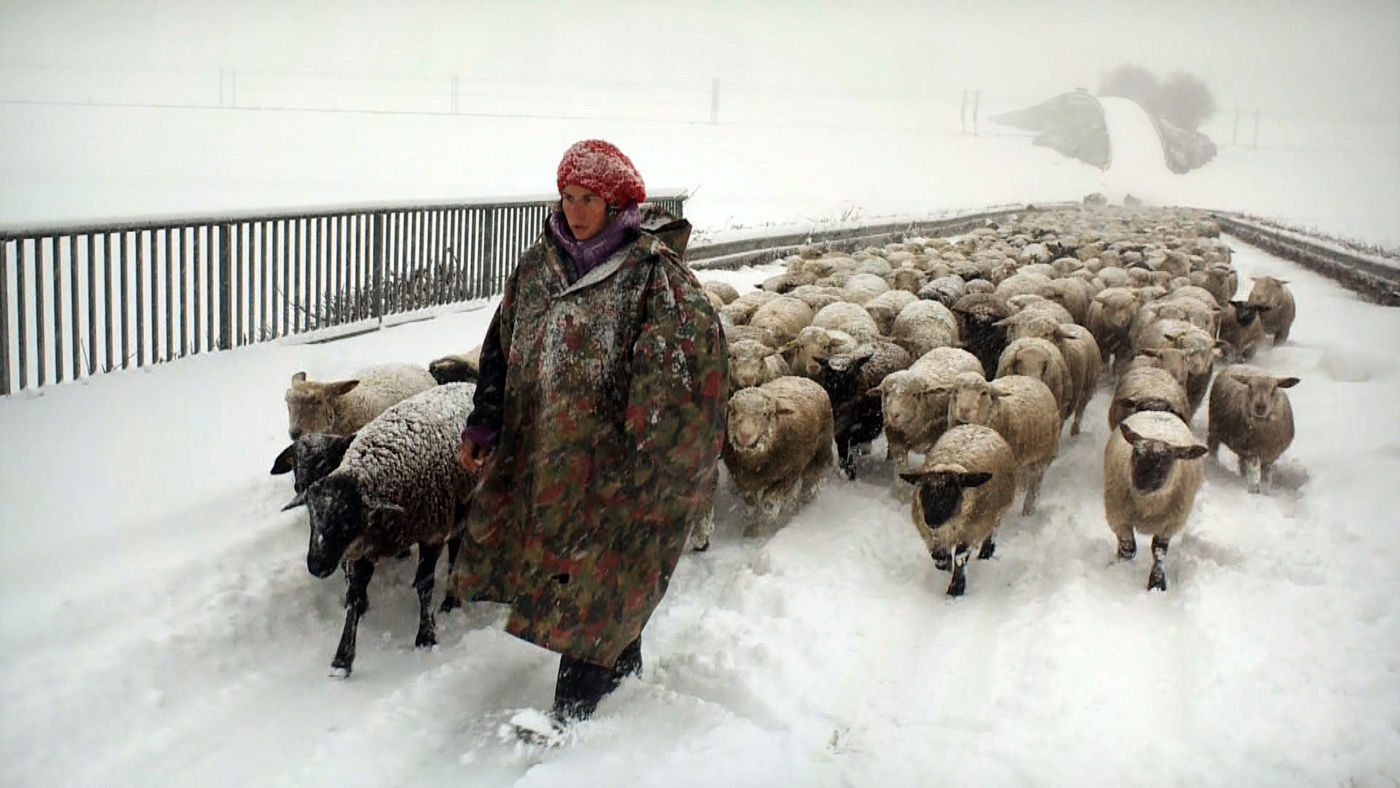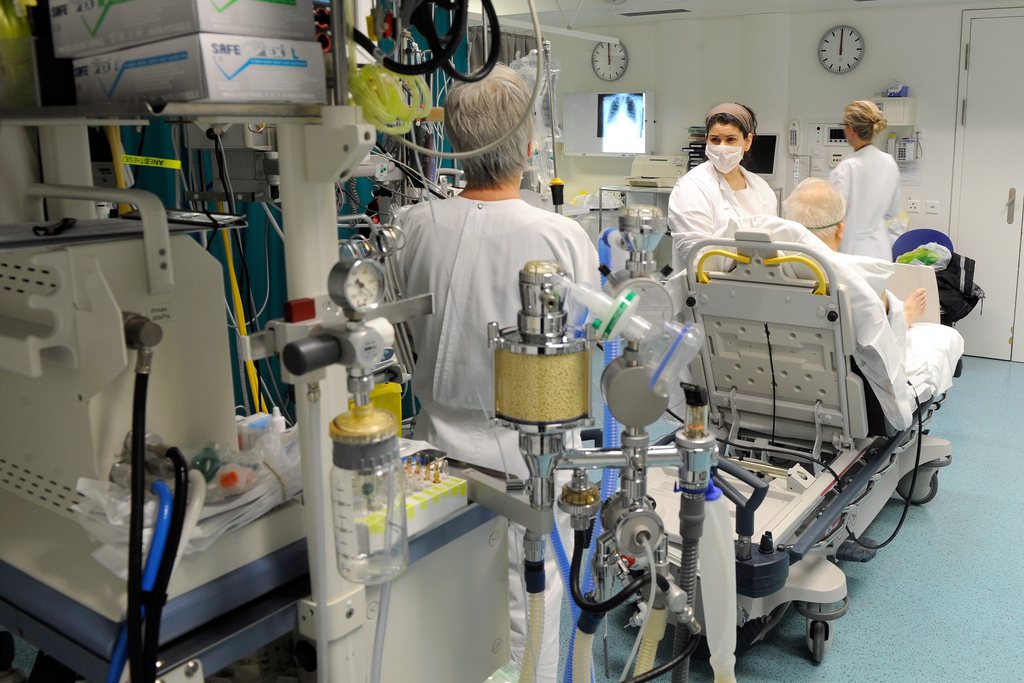Quotas create dilemma for rightwing employers

Who will fill the gap when Swiss employers are limited in the number of skilled workers they can employ from abroad after 2017?
“No system is free. There is always a price to pay,” warns Urs Meister of the think tank Avenir Suisse. However, entrepreneurs from the rightwing Swiss People’s Party, which pushed through quotas at the ballot box, seem unfazed.
Members of the People’s Party who run their own business and are, or have been, parliamentarians are reluctant to comment on the potential impact of quotas on their own companies to swissinfo.ch or the media in general.
Peter Spuhler, CEO of Stadler Rail, Walter Frey, head of the Emil Frey Group (car importer), logistics entrepreneur Ulrich Giezendanner or Hansjörg Knecht of Knecht Mühle – none wants to answer journalists’ questions.
However, Jean-François Rime provides information. The Fribourg People’s Party parliamentarian and president of the Swiss Association of Small and Medium-Sized Enterprises runs family business Sagerime in Bulle which combines a sawmill, a gardening company and a road safety company.
Thirty-five of the 100 employees are from abroad, says Rime. “But I never brought staff from abroad. They came by themselves to Switzerland.”
Despite a 35% proportion of foreigners, Rime doesn’t anticipate any major drawbacks for his business.
Conflicts of interest
As the man at the top of the association, he is well acquainted with the situation of small and medium-sized enterprises (SMEs) and their economic environment. According to the government’s SME portal, SMEs account for more than 99% of Swiss companies and employ 67% of all workers.
To tackle the skills shortage better, Rime appeals to the conscience of the bosses. “Especially in cantons with high unemployment, companies have a certain responsibility to recruit workers from Switzerland.”
He names Neuchâtel and Geneva, which have about 5% unemployment, which also means higher social costs. “With the introduction of quotas, they will then be forced to do so,” says Rime.
For him, it’s clear. “The allocation will lead to conflicts of interest because industries such as agriculture, construction, catering or pharmaceutical have different needs.” Then the authorities must decide. He regrets that in its proposalExternal link in June, the cabinet wants to fix quotas for short-stay residents with work assignments from 90 days.
He counters the objection that none of the previous skills initiatives launched in Switzerland has ever had an effect. “Switzerland has the highest employment rate in Europe as well as the highest rate of workers over 60.”
Nevertheless, the economy must find innovative solutions, he adds. It is clear to Rime that “older workers should be kept in employment longer with more flexible pension models and that women must have better conditions to reconcile work and family”.
Awareness-raising
The situation for People’s Party parliamentarian Hansruedi Wandfluh is slightly different. He’s the second generation to run the family business in Frutigen in the Bernese Oberland, which manufactures parts and equipment in the field of hydraulics and electronics.
Less than 10% of its 325 employees in Switzerland originate from abroad. “We recruit our staff primarily in the region,” says Wandfluh.
However, he also struggles with a shortage of skilled labour. “This is a constant problem for us because in Switzerland there is no training of hydraulic specialists. So we train them ourselves.”
His company currently has about 30 apprentices, seven of them female.
“Investing in Education”, is also Wandfluh’s recipe against the skills shortage. “Many companies do not train apprentices. They must be motivated to offer training places. Not with tax incentives, but with awareness-raising.”
In particular, the proportion of women in technical professions should be increased. “Technology should be made appealing to girls in the classroom already at secondary level,” he says.
Wandfluh does not rule out problems as a result of restrictions on the free movement of persons after 2017, but adds that it is up to the cabinet to present appropriate solutions.
‘No system is free’
According to Urs Meister of Avenir SuisseExternal link, the think tank of the Swiss economy, the impact of quotas might be more serious than anticipated by Rime and Wandfluh. Regarding 2017, he perceives a common “overconfidence”.
“The general hope is for a business-friendly implementation of the immigration restriction. If possible, some industries are also assuming that they have enough political influence to benefit from exceptions or special quotas.”
What will be crucial is the absolute level of quotas, as this will determine the pain. “If the bar is set very high, it won’t hurt anyone. If there are shortages, there will be competition for allocations.”
Meister deems simple solutions like “First Come, First Served” of limited efficiency “because they don’t develop any meaningful targeted effect”.
The most efficient solution for him lies in an auction of quotas, as he suggests in the position paper “Managed ImmigrationExternal link” which he co-authored for Avenir Suisse.
“An administrative distribution of quotas represents a gain for those who get workers and a loss for those who go away empty-handed,” says Meister. “At the auction, immigration is provided with a price tag, so it is automatically directed into high value-added industries. It would also be tied to automatic priority for nationals.”
For him, however, one thing is crystal clear. “Whatever model the cabinet implements, with quotas, someone has to pay the price. No system is free. There is always a price to pay.”
Several sectors of the Swiss economy suffer from a shortage of skilled workers.
Workers from abroad play an important role in the productivity and competitiveness of the Swiss economy.
Shortage of skilled workers is also a consequence of the ageing of society (an increasing proportion of elderly people in the population).
Without employees from abroad, part of the work will have to be relocated abroad, warns Hans Hess, president of industry association Swissmem.
All previous business and political campaigns to compensate for the shortage of skilled workers by activating the potential of the domestic workforce have brought no improvement.
Most recently, in May 2013, the government, the cantons and social partners launched a Skills Initiative. The potential is estimated at just under 1.75 million new Swiss professionals (1.5 million due to higher qualifications, 143,000 women through improved compatibility between work and family life as well 93,000 persons over 55 through a flexible pension scheme).
Free movement of people will ruin Switzerland, Swiss People’s Party figurehead Christoph Blocher warned before the vote on the People’s Party initiative to introduce immigration quotas, which 50.3% of Swiss voters adopted on February 9, 2014.
Swiss nationals must have priority when it comes to filling vacancies, demanded the rightwing party’s chief strategist.
Ironically, his family-run company Ems Group, which is now run by his daughter Magdalena Martullo-Blocher, recruits staff abroad. This was revealed by Swiss tabloid newspaper Blick.
According to Blick, the Blocher company has published paid job advertisements on German online portals like kunststoffe.de and jobvector.de. Engineers, chemists and sales staff are sought. A review of online job sites shows that the facts are correct.
On the question of how serious the Blocher family really is about “nationals first”, Martullo-Blocher replied in Blick that for Ems national priority applies. “The German job ads were published first in Switzerland, she said. “We have made every effort to fill all vacancies in Domat/Ems with people from Switzerland. If this fails, applications from abroad will also be considered.”
According to the State Secretariat for Economic Affairs, 1,889 Swiss engineers, 588 specialists in chemicals and plastics and 15,262 people in distribution and sales were without a job in June.
(Translated from German by Vincent Landon)

In compliance with the JTI standards
More: SWI swissinfo.ch certified by the Journalism Trust Initiative












You can find an overview of ongoing debates with our journalists here . Please join us!
If you want to start a conversation about a topic raised in this article or want to report factual errors, email us at english@swissinfo.ch.